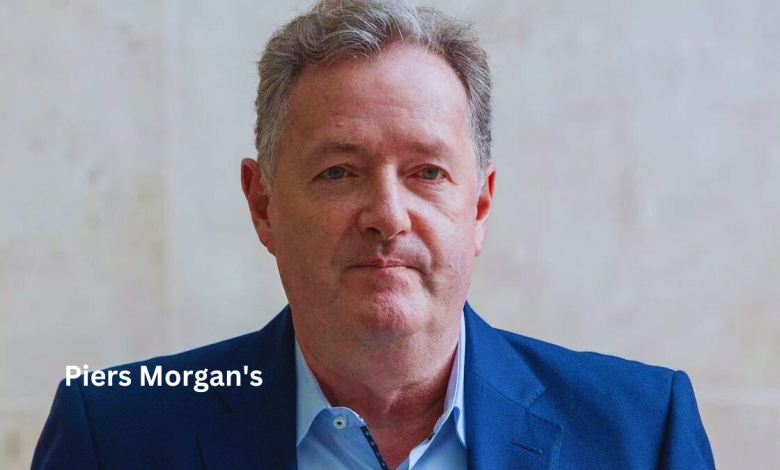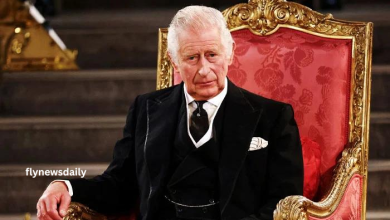
Introduction
The name Piers Morgan seems to stir very strong feelings. Morgan is well-known for his candid criticism and opinionated demeanor, which often stirs things up. His most recent and contentious opinions are on the responsibilities of the British royal family. This article delves into Morgan’s bold perspective, the public reaction, and the broader implications for both the monarchy and media discourse.
Piers Morgan: A Media Maverick
A mosaic of highs and lows, Piers Morgan’s career is distinguished by his ability to remain relevant in the rapidly shifting media scene. Morgan has always been in the spotlight, from his early years as the editor of the “Daily Mirror” to his time as a co-host on “Good Morning Britain” to his time on “America’s Got Talent.” He is a divisive personality because of his readiness to express unpopular views, especially when it comes to debates about the British monarchy.
The Role of the British Monarchy
Understanding the historical and contemporary functions of the British monarchy is crucial to comprehending Morgan’s criticism. The monarchy was the UK’s governing body in the past, but it now primarily serves as a symbolic institution. Public appearances, charitable endeavors, and representing the UK internationally are all part of the modern royal duties. These duties aim to uphold the image and traditions of the monarchy, while also engaging with contemporary societal issues.
Piers Morgan’s Critique of Royal Duties
Morgan offers a comprehensive analysis of the royal family. He makes the case that some royalty members are abdicating their duties and failing to live up to the standards set for them. Morgan has been especially outspoken in his criticism of Prince Harry and Meghan Markle, charging them of putting their own interests before of their duties. He argues that the institution’s integrity is compromised by their decision to abdicate their royal duties. Commentaries like Morgan’s, which labeled Meghan Markle’s behavior as “self-serving” and chastised Prince Harry for “abandoning his responsibilities,” have generated a lot of discussion.
The Public Reaction
The public reaction to Morgan’s statements has been mixed. Some share his opinion, respecting his openness and readiness to hold the royals responsible. Some, on the other hand, think Morgan’s criticisms are overly severe and demeaning. The controversy has received a great deal of coverage from media sources, with opinion pieces endorsing and denouncing Morgan’s position. Polls of the general public also reveal a split attitude, highlighting how divisive the topic is.
Comparisons to Other Royal Critics
In his negative opinions of the monarchy, Piers Morgan is not alone. Similar sentiments have also been expressed by other pundits, including Katie Hopkins and Jeremy Clarkson. But Morgan stands out for his unwavering and very intimate style. While others may critique the institution, Morgan focuses intensely on individual actions and decisions, making his perspective uniquely provocative.
The Impact on the Royal Family
Morgan’s bold statements have potential repercussions for the royal family. Such public critiques can influence public perception and put pressure on the royals to respond or adjust their actions. While the royal family traditionally maintains a stoic silence in the face of criticism, persistent media scrutiny can lead to internal and external pressures to change or address the concerns raised.
Freedom of Speech vs. Respect for Tradition
Morgan’s commentary raises the question of balancing freedom of speech with respect for tradition. While media figures have the right to express their opinions, there is a fine line between critique and disrespect. This balance is especially delicate when discussing an institution as storied and symbolically significant as the British monarchy. Moreover, legal implications around defamation and slander often come into play, adding another layer of complexity to the discourse.
Why Piers Morgan’s Opinion Matters
Piers Morgan’s opinion matters because of his significant influence on public discourse. His comments shape media narratives and can sway public opinion. Whether one agrees with him or not, his ability to spark conversation and debate is undeniable. This influence extends beyond the UK, as Morgan’s international profile brings global attention to his views.
Critics of Piers Morgan
Morgan’s outspoken nature has earned him many critics. Common counterarguments to his views on the monarchy include accusations of bias, sensationalism, and a lack of respect for personal privacy. Some critics argue that Morgan’s attacks are more about generating headlines than fostering meaningful discussion. Personal attacks on Morgan often focus on his abrasive style and perceived vendettas, which some believe undermine his credibility.
Supporters of Piers Morgan
Despite his detractors, Morgan has a substantial base of supporters who appreciate his forthrightness and agree with his critiques. Key figures in media and politics have endorsed his views, praising his willingness to speak out against what they see as failings in the royal family. Public endorsements from influential personalities lend weight to Morgan’s arguments and amplify his reach.
The Broader Context of Media Criticism
Media criticism of the monarchy is not a new phenomenon. Historically, the British press has scrutinized the royal family, with varying degrees of intensity. However, the nature of this criticism has evolved with the rise of social media and 24-hour news cycles, which amplify and accelerate the spread of opinions. Morgan’s critiques are part of this broader trend, reflecting the changing dynamics of media and public discourse.
The Future of Royal Duties
The ongoing debate about royal duties raises questions about the future role of the monarchy. As public expectations evolve, so too might the responsibilities and visibility of the royal family. Potential changes could include more transparency, increased public engagement, and a reassessment of traditional roles. The monarchy’s ability to adapt to these changes will be crucial for its continued relevance.
Piers Morgan’s Future in Media
Piers Morgan’s career is expected to continue being as interesting and contentious in the future. It’s reasonable to believe that, given his past performance, he will continue to take on controversial subjects and spark discussion. Morgan will undoubtedly continue to be present in the media environment, regardless of whether his future criticisms center on the monarchy or cover other topics.
Conclusion
Piers Morgan’s audacious assumption of royal responsibilities is evidence of his status as a media provocateur. His criticisms ignite important discussions about the duties of the monarchy, striking a balance between tradition and modernity, and the influence of the media on public opinion. Even though his opinions are controversial, they unquestionably add to the lively conversation about one of the longest-running organizations in the UK.



